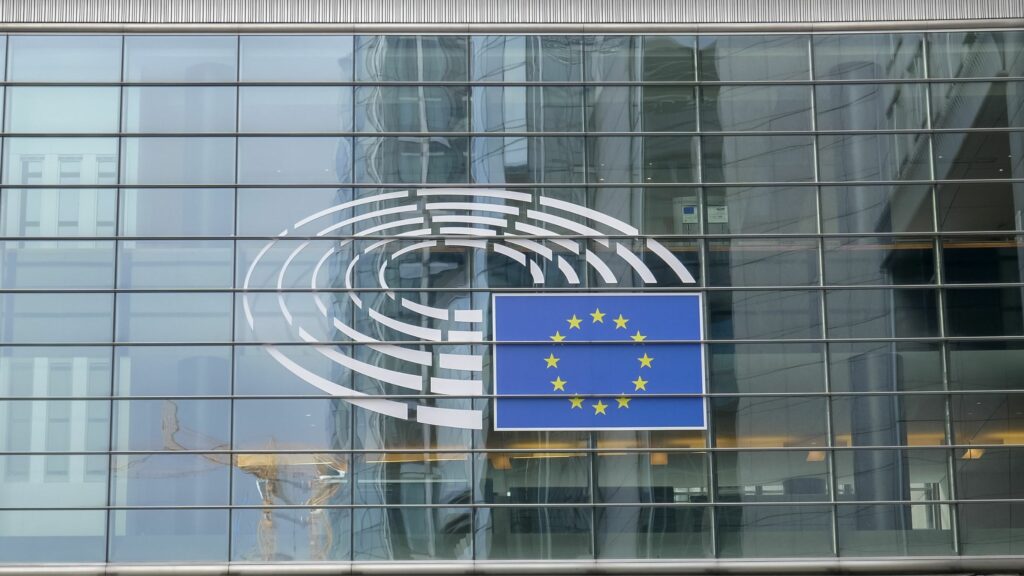Introduction Taxes are burdens on undertakings. They cannot be State aid. However, tax exemptions or reductions can be State aid if they cannot be objectively justified. When a tax measure is in the form of a reduction or exemption, it is relatively easy to establish its selectivity in the meaning of Article 107(1) TFEU. However, when a tax is levied […]
State Aid Law
Blog
State Aid Uncovered Blog
In Lexxion’s State Aid Uncovered blog, Prof. Phedon Nicolaides publishes weekly critical analyses of recent State aid judgments and decisions. Each post presents the key points of a court judgment or EU Commission decision, places it in the context of similar case law or practice, assesses the underlying reasoning and highlights any inconsistencies or contradictions.
Guest contributions from other State aid experts will also be published on the blog at irregular intervals to complement the content of the blog posts.
22. October 2024 |
State Aid Uncovered
by Phedon Nicolaides
16. October 2024 |
State Aid Uncovered
by Phedon Nicolaides
The annual report on the 2023 EU budget by the European Court of Auditors finds that in the field of State aid national authorities wrongly supported ineligible costs. Errors in public procurement and State aid were the largest source of irregularities. Main findings concerning public procurement and State aid “The risk of error is high for expenditure subject to complex […]
15. October 2024 |
State Aid Uncovered
by Phedon Nicolaides
Introduction On 26 September 2024, the Court of Justice [CJEU] delivered four judgments in four related cases: C-790/21 P, Covestro Deutschland v Commission C-792/21 P, AZ v Commission C-794/21 P, Germany v Commission C-795/21 P, WEPA Hygieneprodukte v Commission All cases concerned appeals against the corresponding judgments of the General Court by which it dismissed the actions for annulment of […]
8. October 2024 |
State Aid Uncovered
by Phedon Nicolaides
Introduction On 5 September 2024, the Court of Justice of the EU [CJEU] delivered two judgments on the two most frequent procedural issues on State aid: Who has standing to challenge a Commission decision and when the Commission is obliged to initiate the formal investigation procedure. These two issues are closely connected. Those whose interests are harmed by State aid […]
1. October 2024 |
State Aid Uncovered
by Phedon Nicolaides
Introduction In some Member States, the provision of potable water to households is a “closed” sector. This means that public funding of the operations of the water provider does not constitute State aid. However, according to the case law of the Court of Justice, for a sector to be considered closed to trade and competition it is not sufficient that […]
24. September 2024 |
State Aid Uncovered
by Phedon Nicolaides
Introduction The Commission recently approved State aid granted by Czech Republic for the construction of a multifunctional arena in Brno, with a capacity of 13300 visitors [see SA.58891]. The aid measure was unusual because it foresaw possible future public funding to cover certain financial costs in case the net operating revenue would not be enough. However, the Commission approved possible […]
25. September 2024 |
Guest State Aid Blog
by Lexxion Publisher
Guest State Aid Blog by Professor Leigh Hancher, Nicole Robins and Dr Philipp Schliffke[1] 1 Introduction The Renewable Energy Directive 2018/2001 (‘RED II’) states that ‘the promotion of the production and use of biomethane, its injection into a natural gas grid and cross-border trade create a need to ensure proper accounting of renewable energy as well as avoiding double incentives […]
17. September 2024 |
State Aid Uncovered
by Phedon Nicolaides
Introduction On 10 September 2024, the Court of Justice [CJEU] delivered its much anticipated judgment, in case C-465/20 P, Commission v Ireland & Apple. It ruled that Ireland had granted incompatible State aid to Apple through preferential tax rulings.[1] The judgment was the result of an appeal by the Commission against the judgment of the General Court in case T-778/16, Ireland […]
10. September 2024 |
State Aid Uncovered
by Phedon Nicolaides
Introduction Normally the cost of compliance with mandatory regulations may not be offset, partially or fully, by State aid because it lacks incentive effect. The beneficiaries would have to incur those costs anyway. However, even in the case of mandatory compliance, State aid may still have an incentive effect if the undertakings concerned would cease altogether the activity in question. […]
30. August 2024 |
State Aid Uncovered
by Phedon Nicolaides
Part II: Advantage The Commission, first, explained that the “(80) intervention must be considered as a whole, considering the purpose and timing of the various stages in which AMCO’s intervention is to be made, within the context and contents of the second arrangement proposal. Whether or not a transaction is in line with market conditions must be established through a […]
22. October 2024 |
State Aid Uncovered
by Phedon Nicolaides
Introduction Taxes are burdens on undertakings. They cannot be State aid. However, tax exemptions or reductions can be State aid if they cannot be objectively justified. When a tax measure is in the form of a reduction or exemption, it is relatively easy to establish its selectivity in the meaning of Article 107(1) TFEU. However, when a tax is levied […]
16. October 2024 |
State Aid Uncovered
by Phedon Nicolaides
The annual report on the 2023 EU budget by the European Court of Auditors finds that in the field of State aid national authorities wrongly supported ineligible costs. Errors in public procurement and State aid were the largest source of irregularities. Main findings concerning public procurement and State aid “The risk of error is high for expenditure subject to complex […]
15. October 2024 |
State Aid Uncovered
by Phedon Nicolaides
Introduction On 26 September 2024, the Court of Justice [CJEU] delivered four judgments in four related cases: C-790/21 P, Covestro Deutschland v Commission C-792/21 P, AZ v Commission C-794/21 P, Germany v Commission C-795/21 P, WEPA Hygieneprodukte v Commission All cases concerned appeals against the corresponding judgments of the General Court by which it dismissed the actions for annulment of […]
8. October 2024 |
State Aid Uncovered
by Phedon Nicolaides
Introduction On 5 September 2024, the Court of Justice of the EU [CJEU] delivered two judgments on the two most frequent procedural issues on State aid: Who has standing to challenge a Commission decision and when the Commission is obliged to initiate the formal investigation procedure. These two issues are closely connected. Those whose interests are harmed by State aid […]
1. October 2024 |
State Aid Uncovered
by Phedon Nicolaides
Introduction In some Member States, the provision of potable water to households is a “closed” sector. This means that public funding of the operations of the water provider does not constitute State aid. However, according to the case law of the Court of Justice, for a sector to be considered closed to trade and competition it is not sufficient that […]
24. September 2024 |
State Aid Uncovered
by Phedon Nicolaides
Introduction The Commission recently approved State aid granted by Czech Republic for the construction of a multifunctional arena in Brno, with a capacity of 13300 visitors [see SA.58891]. The aid measure was unusual because it foresaw possible future public funding to cover certain financial costs in case the net operating revenue would not be enough. However, the Commission approved possible […]
17. September 2024 |
State Aid Uncovered
by Phedon Nicolaides
Introduction On 10 September 2024, the Court of Justice [CJEU] delivered its much anticipated judgment, in case C-465/20 P, Commission v Ireland & Apple. It ruled that Ireland had granted incompatible State aid to Apple through preferential tax rulings.[1] The judgment was the result of an appeal by the Commission against the judgment of the General Court in case T-778/16, Ireland […]
10. September 2024 |
State Aid Uncovered
by Phedon Nicolaides
Introduction Normally the cost of compliance with mandatory regulations may not be offset, partially or fully, by State aid because it lacks incentive effect. The beneficiaries would have to incur those costs anyway. However, even in the case of mandatory compliance, State aid may still have an incentive effect if the undertakings concerned would cease altogether the activity in question. […]
30. August 2024 |
State Aid Uncovered
by Phedon Nicolaides
Part II: Advantage The Commission, first, explained that the “(80) intervention must be considered as a whole, considering the purpose and timing of the various stages in which AMCO’s intervention is to be made, within the context and contents of the second arrangement proposal. Whether or not a transaction is in line with market conditions must be established through a […]
27. August 2024 |
State Aid Uncovered
by Phedon Nicolaides
Introduction When a party to a financial transaction is a company that is owned and controlled by the state, it is difficult to determine whether the transaction is free of State aid. This is because it is not easy to prove that the state had no influence over the decision of the company to carry out that transaction. The Commission […]
25. September 2024 |
Guest State Aid Blog
by Lexxion Publisher
Guest State Aid Blog by Professor Leigh Hancher, Nicole Robins and Dr Philipp Schliffke[1] 1 Introduction The Renewable Energy Directive 2018/2001 (‘RED II’) states that ‘the promotion of the production and use of biomethane, its injection into a natural gas grid and cross-border trade create a need to ensure proper accounting of renewable energy as well as avoiding double incentives […]
16. November 2023 |
Guest State Aid Blog
by Michał Bernat
The Interplay of R&D Works and Formal Incentive Effect Rules Michał Bernat.1 The issue mentioned in the title appears at first sight rather uncontroversial, as it is instinctively understood that research and development (R&D) works do not form part of an investment towards which they are directed, but this brief note raises certain issues arising in that respect which have […]
30. March 2023 |
Guest State Aid Blog
by Lexxion Publisher
We’re happy to announce that Lexxion publisher has become a media partner to the FIDE Congress, one of the most distinguished events on EU law. Of particular interest for the readers of the State Aid blog and the EStAL quarterly is the second topic of the congress, dedicated to the new geopolitical dimension of the EU competition and trade policies. […]
30. June 2022 |
Guest State Aid Blog
by Lexxion Publisher
Reading the Editorial by Andreas Bartosch (EStAL 1/2022, 1), I feel tempted – not to worship Satan or the GBER, but to add some more colours to the picture drawn up by the esteemed colleague. It is true that the Block Exemption Regulations were intended to save the Commission Services from „lästigem Alltagsgerümpel“ (“boring routine rubbish”, as Andreas Bartosch dubbed […]
27. May 2022 |
Guest State Aid Blog
by Lexxion Publisher
A recent FSR Debate[1] held on 4 May examined the key question of how policymakers and regulators can avoid carbon lock-in jeopardising the attainment of the European Union’s ambitious energy and climate targets. Carbon lock-in refers to situations where emissions-intensive energy assets continue to be used even when low-carbon and socially more beneficial assets are available. This is a controversial […]
19. August 2021 |
Guest State Aid Blog
by Lexxion Publisher
The article is based on a legal opinion, that was given to LEAG. Doubts regarding the existence of an advantage – continued Compensation amounts based on a MEO settlement agreement An essential component of the compensation covering the full scope of any damages caused to the operators affected by the early closure is also the avoidance of legal and factual […]
12. August 2021 |
Guest State Aid Blog
by Lexxion Publisher
The article is based on a legal opinion, that was given to LEAG. Introduction The European Green Deal envisages a clean and decarbonised energy sector with net-zero greenhouse gas emissions by 2050.[1] These ambitious objectives entrust the Member States with enormous tasks in connection with the transformation process, which must always be designed in a proportionate manner. For this purpose, […]
29. July 2021 |
Guest State Aid Blog
by Lexxion Publisher
The persistently cautious approach of the Court of Justice of the European Union (CJEU) to recognizing any really meaningful rights for third parties in State aid proceedings before the European Commission as well as in judicial proceedings is well-known and frequently criticized. With the recent adoption of the new Climate Law at the end of June and the official launch […]
15. July 2021 |
Guest State Aid Blog
by Lexxion Publisher
As part of the investments to support the digitisation, innovation and competitiveness of the production system[1], the Italian Recovery and Resilience Plan (NRRP) has allocated €6.71 billion for interventions in favor of ultra-fast networks (ultra-broadband and 5G)[2]. The amount will be deployed by 2026 to achieve the objectives defined in the “Italian Strategy for ultra-broadband”[3] in accordance with the EU […]
8. July 2021 |
Guest State Aid Blog
by Alexander Rose
The long awaited Subsidy Control Bill has been published by the UK Government with bold promises that it will “create a new system for subsidies that can enable key domestic priorities, such as levelling up economic growth across the UK and driving our green industrial revolution“. In this article we identify the main changes immediately emerging from the draft legislation, […]



















